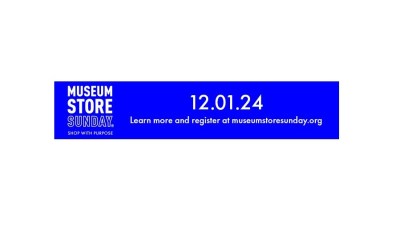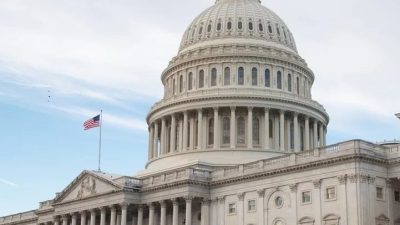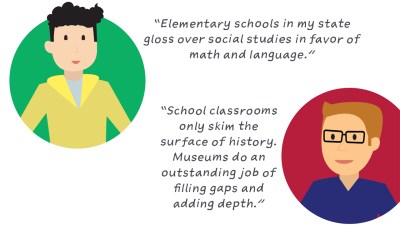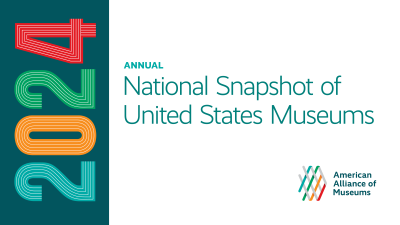
Sometimes “anyone can participate” isn’t as inclusive as it seems. There can be all sorts of invisible barriers, including who even hears the invitation to begin with. Sometimes it takes an extra effort to make sure that “anyone” actually means “everyone.” Case in point, when we document the impact of the pandemic on American communities, whose experiences are we capturing? And if people aren’t heard, will they truly be served? Today on the blog, Peter Linett, President of Slover Linett, issues a call for museums to help ensure that Black, Indigenous, and Communities of Color are equitably represented in research on culture and community during this tumultuous year.
–Elizabeth Merritt, VP Strategic Foresight and Founding Director, Center for the Future of Museums
Here’s the quick take, if you’re in a hurry: We recently opened sign-ups for Culture + Community in a Time of Transformation: A Special Edition of Culture Track, a large-scale, second-wave survey of cultural audiences (visitors, program participants, users, attenders, community members, etc.) as well as the broader U.S. public. This 2021 edition involves an even wider range of cultural organizations than the early-pandemic wave, and it’s more focused on informing and supporting equity and systemic change during the recovery and beyond. Thanks to several generous foundations, participating is free to all kinds of cultural enterprises, and more than 400 have already opted-in to send the survey invitations to their participants in April. Slots are limited, but we’re still welcoming in museums and other cultural and community organizations of all types, sizes, and missions — with priority given to BIPOC-serving and/or rural organizations, as well as public libraries, festivals of all kinds, parks, and indie performance venues. Please visit our new mini-site to read more, and spread the word to your networks. This is a major opportunity to better understand the people and communities you serve (and receive your own respondents’ data in useful forms) while also contributing to a national, policy-level research picture that will help the whole cultural sector become more equitable, useful and relevant during this pivotal moment. Interested organizations should complete the sign-up form no later than Monday, March 15.
And the longer version, if you have another minute: Almost a year ago, during the bewildering early weeks of the pandemic, my colleague Jen Benoit-Bryan, PhD wrote an urgent post here inviting museums of all types and sizes to participate in what we were then calling Culture + Community in a Time of Crisis: A Special Edition of Culture Track. The idea was to keep the cultural sector — not just museums and informal learning but the performing arts, storytelling, media, and other areas of culture and creativity — in touch with its participants, audiences, communities, and users, so that the field could be more helpful and relevant during the crisis and recovery.
Museums responded in a big way: More than 330 of them emailed the survey invitations to their lists of visitors, program participants, members, etc. Hundreds of other kinds of arts and culture organizations did too, and some 124,000 adults in the U.S. completed the survey — making this one of the largest studies of cultural experiences, needs, digital behaviors, and desires for change ever conducted in this country.
But in the haste and rapid learning of those months, we didn’t do enough to make sure that smaller, community-embedded organizations — especially those serving Black, Indigenous and communities of color and/or rural communities — knew that this project was meant to help them and their participants and communities, too. We hadn’t earned the trust or built the relationships that would have helped more BIPOC arts and culture leaders feel welcomed and engaged in this collective effort.
In other words, despite our hope of taking a broad, inclusive view of “culture” in the U.S. in this research, our process ended up replicating some all-too-familiar inequities in the field.
Lessons learned, and still learning. As we collaborate with our partners and funders on the 2021 wave of the study, now called Culture + Community in a Time of Transformation, we’re working and thinking differently. Yes, we’re still inviting all kinds of museums and cultural organizations across U.S. to participate by sharing the survey invitations with their participants and audiences. But we’re also working with a new group of expert advisors. We’re having exploratory, vulnerable conversations with national and regional funders, networks and professional organizations, activists, and advocates whose work centers Black, Indigenous, and POC-serving cultural organizations. And we’re talking with library leaders about underserved populations and the digital divide, with organizers of local festivals, with networks of independent music venues, with creative placemaking and “arts &” programs — all with an emphasis on equity. We’re learning what will and won’t make this next phase of research valuable to their work, and how it could easily be extractive or even harmful.
And we’re humbly, enthusiastically inviting all those categories of organizations into the study, giving them priority within the limited number of slots available.
We hope all kinds of museums and cultural organizations will join in making this new research portrait reflective of the full range of cultural activity and service in this country — and inclusive and representative of the experiences, assets, needs, hopes, and visions of relevance of people from all kinds of communities. The sign-up process closes this Monday, March 15. For more info, including FAQs for interested organizations and a link to the sign-up form, please visit http://sloverlinett.com/CCTT.
Questions? Requests? Aspirations? Please email me or the project team collectively. We all look forward to learning, growing, and transforming with you.
Skip over related stories to continue reading articleAbout the author:
Peter Linett is president of Slover Linett, a Chicago-based social research & evaluation firm for the cultural sector, broadly defined to include the arts, museums, creative community development, public spaces, public media, science engagement, philanthropy, etc. He serves on the editorial board of Curator: The Museum Journal and the board of Guerilla Science. Slover Linett’s pandemic-era collaboration with LaPlaca Cohen and Yancey Consulting on Culture + Community in a Time of Transformation: A Special Edition of Culture Track, is supported generously by the Wallace Foundation, Barr Foundation, Terra Foundation for American Art, William Penn Foundation, and Knight Foundation, with key additional support from FocusVision and NORC at the University of Chicago. He can be reached at peter@sloverlinett.com.









Comments